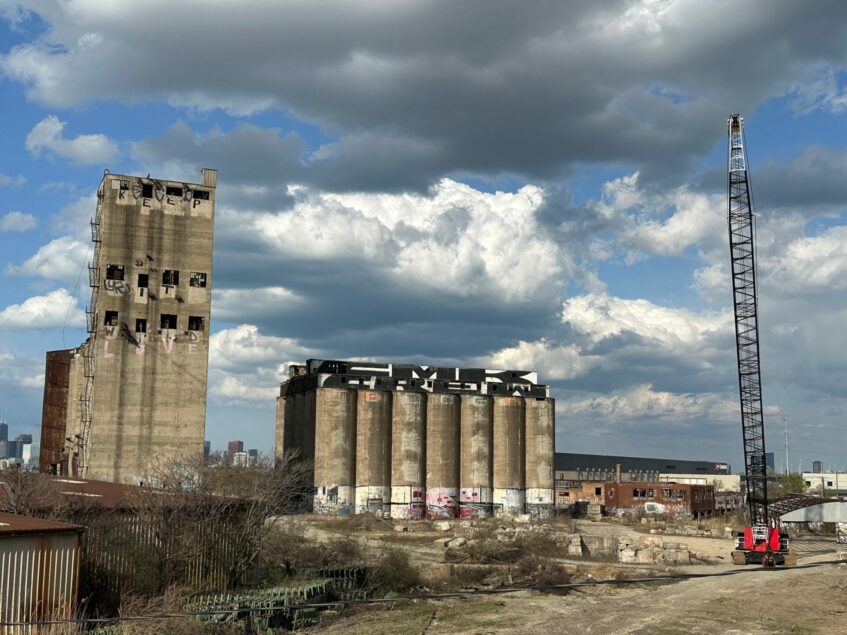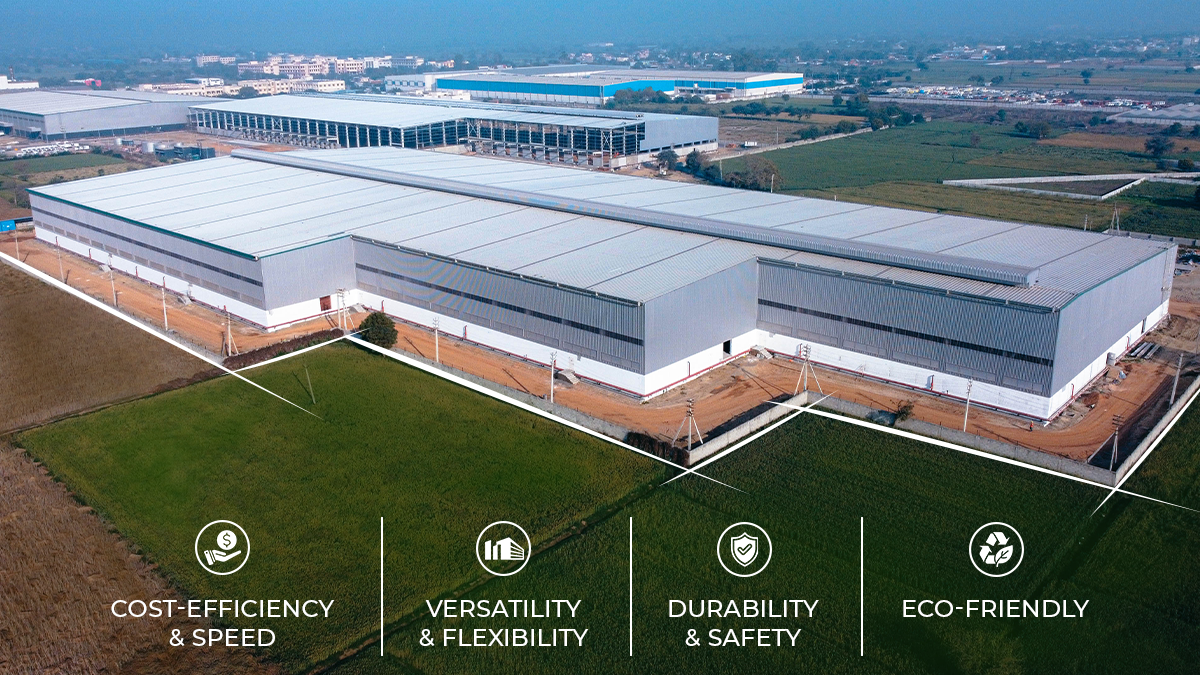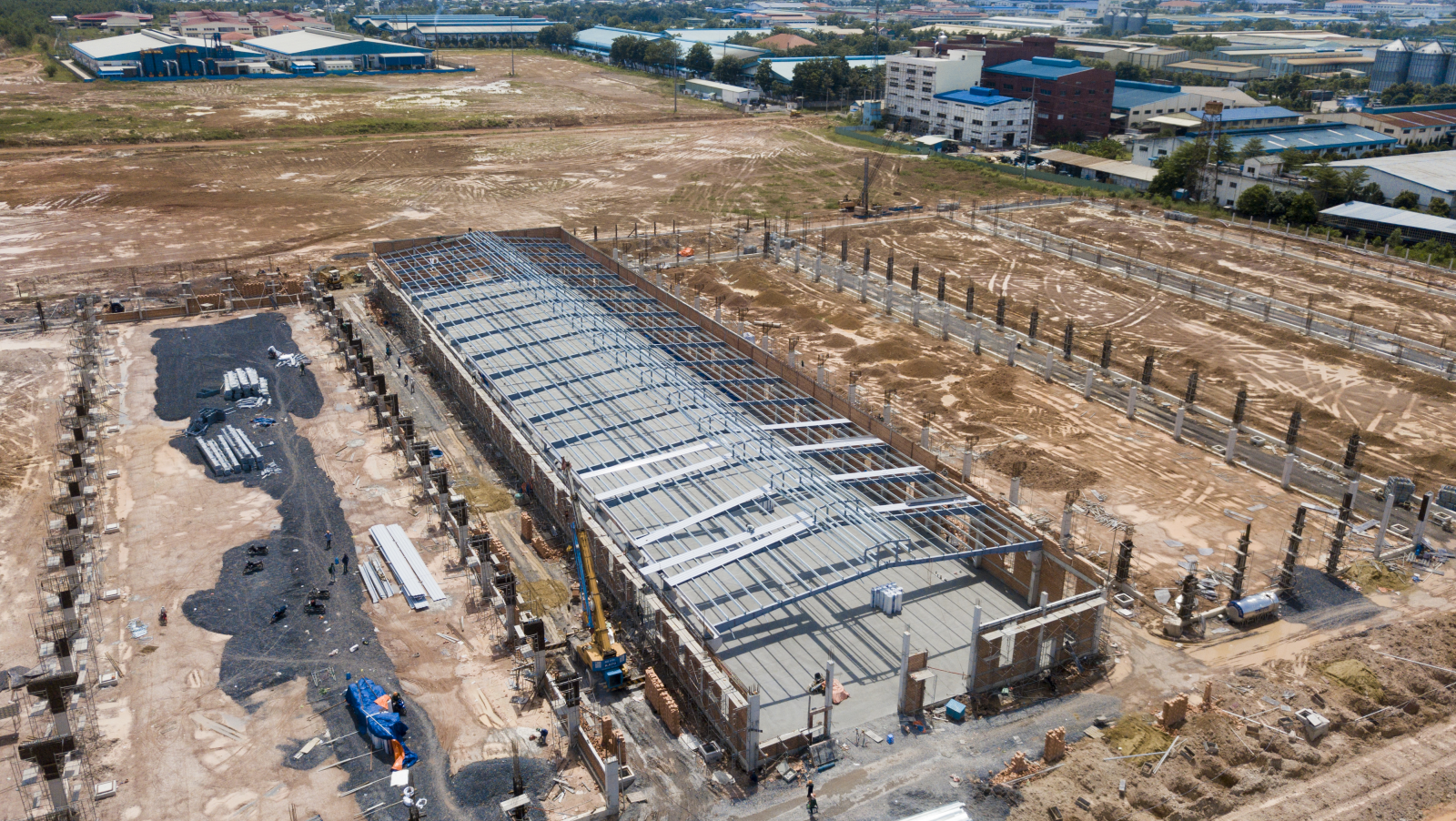
Damen Silos Coming Down in Chicago
[ad_1]

Demolition can start after site work is completed at the Damen Silos, a collection of grain elevators dating from 1906 that preservationists and others regard as a local Chicago landmark and which they have tried for years to save as an example of city’s historic role in the grain industry.
The owner of the property at 2860 S. Damen Ave., which is next to the Chicago River in the southwest McKinley Park neighborhood, is Michael Tadin Jr. of MAT Asphalt. He has hired Heneghan Wrecking of Chicago to take down the five structures that comprise the silos, which were built by the Topeka & Santa Fe Railroad in the early 20th century, and which were abandoned in the late 1970s following an explosion.
The cost of the demolition contract has not been disclosed. It covers two 10-story concrete bundled silos, a one-story masonry building and two one-story pre-engineered metal structures. MAT Asphalt purchased the property from the state for $6.25 million in 2022.
Ald. Julia Ramirez (D), representing the 12th ward where the silos are located, said in a recent Facebook post that the Chicago Dept. of Buildings (CDoB) and the Chicago Dept. of Public Health (CDPH) signed off on demolition permits on July 3 and that the process would begin after the July 4 holiday.
“CDPH and DoB will have inspectors onsite daily to ensure all the proper safety measures are taken,” Ramirez said. “The demolition of this entire site will be mechanical demolition; no explosives will be used.”
Building Dept. Commissioner Marlene Hopkins told a local news site that the silos will not be removed by explosion or implosion and that “they will be taken down piece-by-piece using high-reach excavators and cranes. Barges will be placed to protect the river from debris.”
The demolition of each building will start from the top down, and the whole process is expected to take at least six months, says Hopkins adding that demolition will be halted if any items fall in the river.
The U.S. Army Corps of Engineers also issued a permit in December 2024 allowing water from the Chicago River to be used to suppress dust during demolition.
No plans have been announced yet for how the 23-acre property will be re-developed.
“The Damen Silos are one of the last remaining monuments to Chicago’s historic dominance in the national grain industry,” Landmarks Illinois notes on its website, adding that the purchase of the silos proceeded in 2022 “despite objections from local residents and advocacy organizations who have environmental concerns about MAT’s activities in McKinley Park.”
The company operates an asphalt plant near the silos which residents alleged emitted noxious odors in a class action lawsuit that was settled for $1.3 million in July 2024.
The demolition of another project to bring down a 95-year-old smokestack at a closed coal-fired power plant in 2020, raised a cloud of dust that settled over the nearby Little Village neighborhood. It has raised awareness in general about how complex demolitions are handled. In that case, Chicago issued $68,000 in fines against Hilco Redevelopment Partners and its demolition sub-contractors, MCM Management Corp. and Controlled Demolition Inc., and placed a six-month moratorium on implosions, the Chicago Sun-Times reports.
“We cannot and will not repeat the mistakes of the past, which is why complex demolitions require stringent review and public engagement regarding their potential impact,” Hopkins told ENR.
She said that the contractor must provide a current survey with the horizontal differences of distance between the buildings to be demolished, a report of the structural conditions of the buildings to be razed and a written safety and operations report.
Recently, neighbors of the silos have pushed for the property to be redeveloped as an events venue similar to the Salt Shed, which was formerly a Morton Salt warehouse in Chicago and has been transformed into a concert venue that maintains parts of the original structure.
“I’m disappointed the private owner of the site will not be saving the structures to be repurposed for an adaptive reuse as the community has been advocating for,” Ramirez said.
Neither Hennegan nor MAT Asphalt immediately replied to requests for comment.
[ad_2]
Source link
Post a Comment
You must be logged in to post a comment.






